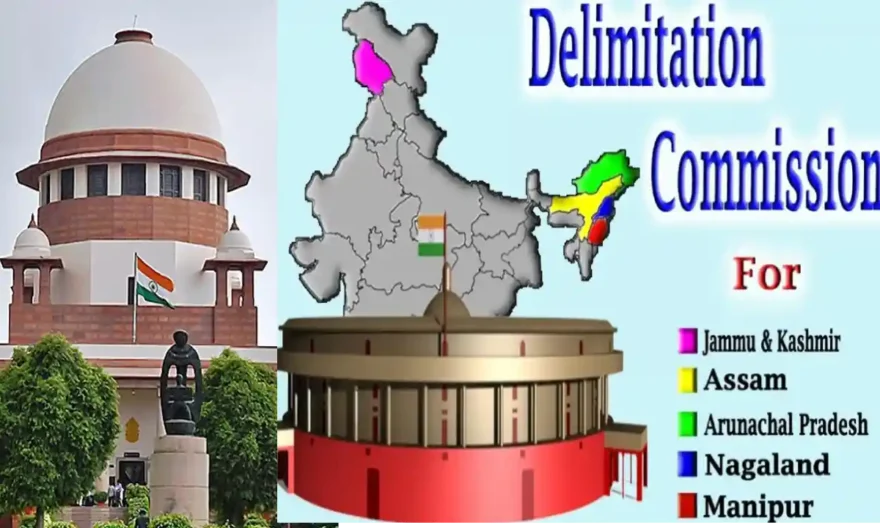
The Supreme Court on Monday dismissed a petition challenging the delimitation exercise of Legislative Assembly and Lok Sabha constituencies in Jammu & Kashmir.
A division bench of Justice S.K. Kaul and Justice A.S. Oka was hearing a petition filed by two Srinagar residents, Haji Abdul Gani Khan and Muhammad Ayub Matto, challenging the delimitation exercise undertaken in the Union Territory of Jammu and Kashmir pursuant to the recent notifications.
Justice Oka stated that the dismissal of the petition should not be interpreted as an endorsement of the decisions made in relation to Article 370 because the issue is pending before a Constitution Bench.
“We have dismissed the petitions. We have given the rider that the issue of the Reorganisation Act is pending before this Court and we have not said anything on the merits of the same,” the Court said.
The petition challenged the increase in the number of seats from 107 to 114 in the UT claiming that the same was ultra vires Articles 81, 82, 170, 330 and 332 of the Indian Constitution and Section 63 of the Jammu and Kashmir Re-organisation Act,2019.
Representing the petitioners, Senior Advocate Ravi Shankar Jandhyala contended that the respondents had no power to establish a Delimitation Commission under Section 3 of the Delimitation since only the Election Commission could carry out the process of delimitation after the notification of the Parliamentary and Assembly Constituencies Delimitation Order, 2008.
The petition also stated that Article 170 of the Constitution provides for the next delimitation to be undertaken after 2026, but the Union Territory of J&K was singled out.
Advocate Shankar further stated that increasing the number of seats was in violation of the constitutional amendment which froze any delimitation exercises till 2026.
He also pointed out that four northeastern states were left out of the exercise, which violated Article 14. (right to equality before the law).
Justice Oka had repeatedly questioned why the current petition, filed under Article 32, had not challenged the constitutionality of provisions of the Jammu and Kashmir Reorganisation Act that allow for delimitation.
Section 62(2) of the said Act provides for re-adjustment of constituencies in the Union Territory by a Delimitation Commission.
Appearing for the respondents, Solicitor General (SG) Tushar Mehta, argued that Reorganisation Acts have been used in the past to increase the number of MLAs.
Advocate Mehta further contended that the legislative intent of the Reorganisation Act was to take care of temporary exigencies and peculiar circumstances, and that is why the commission conducted the first delimitation exercise, and the ECI can follow.
What is Delimitation Act?
Delimitation is the act of redrawing the boundaries of an Assembly or Lok Sabha seat to reflect population changes over time. The Centre-appointed Delimitation Commission submitted its final report for delimitation in Jammu and Kashmir in May last year, recommending seven additional constituencies, six for Jammu and one for Kashmir, bringing the total number of seats in the UT to 90 from 83 previously.
The Supreme Court reserved its decision in December on a petition challenging the Commission’s constitution. According to the petitioners, only the Election Commission is authorised to conduct the delimitation exercise under the 2019 Act. The Centre, on the other hand, stated that the J&K Reorganisation Act of 2019 directs the Delimitation Commission to do so.




